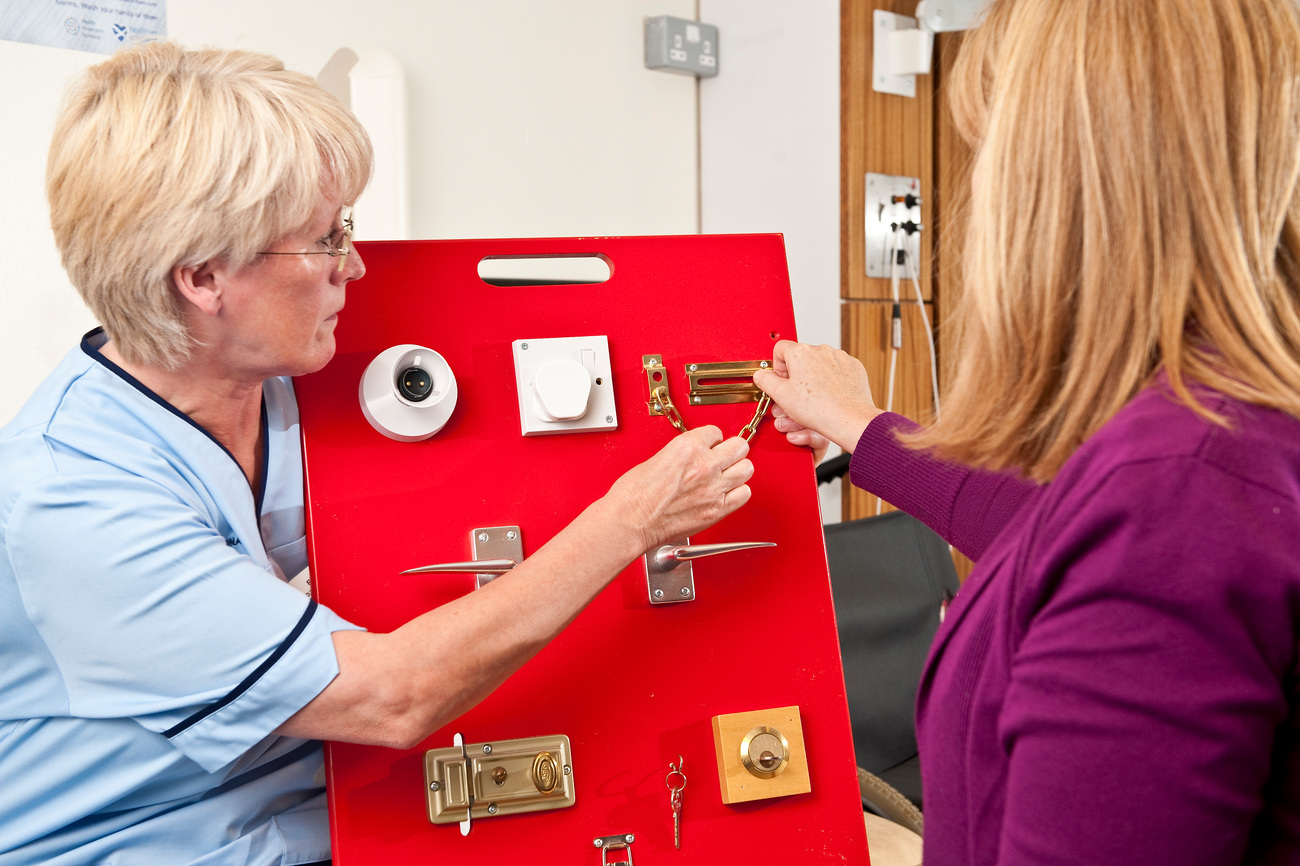How to become an occupational therapy support worker
You can become an occupational therapy support worker by applying for a vacancy on our recruitment website or doing a Modern Apprenticeship.
What is an occupational therapy support worker?
Occupational therapy takes a whole-person approach to both mental and physical health wellbeing.
Occupational therapy support workers help occupational therapists to assess, diagnose, and treat people with physical, mental, or social issues.
They also support people to adjust their lifestyles and find new ways of doing things to achieve their full potential.

Starting your career as an occupational therapy support worker
Choosing subjects at school
To become an occupational therapy support worker, you'll need a good standard of education. There are no specific entry requirements, but useful subjects include:
- Science
- English
- Maths
Speak to your guidance teacher about subjects offered at your school.

Work placements and volunteering
You may find it helpful to get some healthcare experience by doing a work placement or volunteering. You’ll get training, increase your knowledge, and learn new skills. This could help you when applying to university, college or a new job with NHSScotland.
Modern Apprenticeships
A Modern Apprenticeship will help you get the knowledge, skills, and experience you need to reach your career goal.
Learn about the Modern Apprenticeship in Healthcare Support.
All Healthcare Support Modern Apprentices study 3 mandatory units:
- communication
- health and safety
- learning development
You'll choose your remaining units from the clinical pathway options for occupational therapy.
Get to know the role
As part of the occupational therapy team, you’ll provide practical support, to help patients continue doing day-to-day tasks and activities they enjoy.
You’ll care for people of all ages with a range of health conditions. For example:
- people with dementia
- stroke patients
- the elderly
- children with disabilities
- patients recovering from major surgery
You'll also work with occupational therapists to assess, diagnose and treat people in hospitals, clinics, or in their own homes.
Tasks include:
- create a daily routine and help people learn or re-learn skills to achieve their goals
- help people to adjust their lifestyle, learn new ways of doing things and develop strategies
- help people to use mobility aids, adaptions, or assistive technology
You'll need these skills:
- caring
- communicating
- motivating people
- problem-solving
- relationship-building
Occupational therapy support workers work with other health and social care professionals, including:
- occupational therapists
- nurses
- social workers
- occupational therapy assistant practitioners
- physiotherapists
You could work in:
- hospitals
- the community
- health centres
Learning and development
When joining the NHS, you will work through the Mandatory Induction Standards. These standards are designed to help you work safely and must be completed within the first 3 to 6 months of employment.
You may also be encouraged when in the post to work towards further education qualifications. These may include:
- SVQ Healthcare Support (Clinical) at SCQF level 7
- SQA HNC Occupational Therapy Support
- Professional Development Award (PDA) Occupational Therapy Support
Career development
Getting experience as a healthcare support worker can be very helpful if you decide you want to go to university and study to become a registered occupational therapist.
Navigate page

Explore careers
Discover the skills and qualifications you’ll need for each role and what the work will be like.
Explore careers
Help with recruitment
We'll guide you through the recruitment process, from applying online to interview preparation.
Help with recruitment